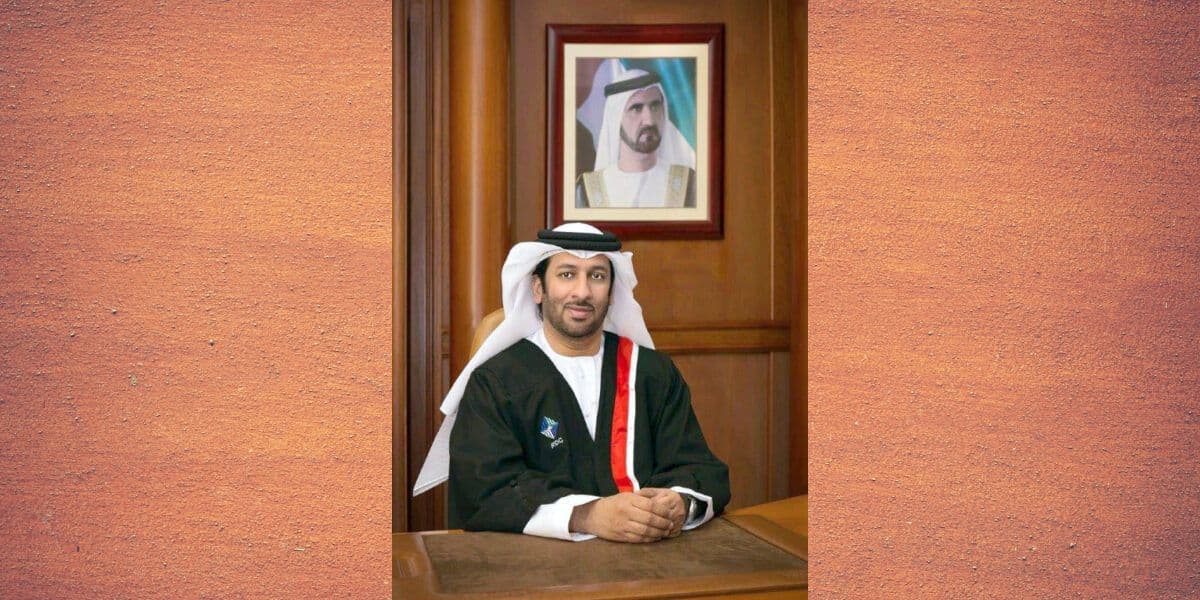
Nine years of fulfilment, giving, and sustainable development reflects the journey of the Rental
Disputes Centre (RDC), the judicial arm of Dubai Land Department (DLD), launched according to a
systematic developmental journey to achieve social and economic stability for all those involved in
the real estate rental sector and other relevant sectors, establishing a specialised judicial system
according to a streamlined mechanism.
Judge Abdulqader Mousa, Director of the RDC, said, “The Rental Disputes Centre in Dubai has
taken it upon itself to strengthen and develop the judicial system in the real estate sector. It is based
on the wise vision of His Highness Sheikh Mohammed bin Rashid Al Maktoum, Vice President,
Prime Minister and Ruler of Dubai, who has always emphasised that justice is the basis of
governance and the happiness of members of society. We worked diligently and tirelessly with our
qualified national cadre. We harnessed our material resources, particularly technical ones, to keep
pace with global developments and chart a strategic path that would define the future of litigation. It
was consistent with the vision and directions of the emirate to consolidate its position in the regional
and global arena as the premier real estate destination for investors.”
Mousa added, “We are proud to have developed the world’s first smart judicial rental system and
made it available to litigants, whether inside or outside the country. It is based on a sustainable
methodology, a pioneering real estate and rental model, an environment that incubates innovation
and effective governance, and is part of Dubai Land Department’s strategic vision.”
Unparalleled success
The RDC achieved remarkable success in terms of addressing and settling rental disputes. The
number of lawsuits registered in the centre has reached 103,975 rental lawsuits, divided between
92,732 primary and 11,243 appeal lawsuits, of which 100,000 lawsuits have been settled,
comprising 96 percent of the cases registered at the centre.
These lawsuits represent only 1.9 percent of the total number of lease contracts registered with the
Dubai Land Department in the same period, amounting to more than 5.2 million lease contracts with
a total value of AED654 billion. This contributes to enhancing the community’s confidence in the
laws and legislative system in the emirate.
Mousa clarified, “One can infer the speed and accuracy of litigation through the index of the average
duration of first-instance lawsuits, which is ten days, and the average duration of appeal lawsuits,
which is 14 days. Concerning the execution of judgments, the average duration of execution of rental
judgments and decisions in 2013 was 10 days. After the implementation, services were transformed
into smart services following the provision of a coherent and integrated system. Thanks to the efforts
of the implementation team which constantly seeks to develop its tools and create new systems to
improve work mechanisms in the implementation sector, the average duration of execution of rental
Judgments and decisions for 2022 is four days, while the rate of execution of rental Judgments and
decisions reached 97 percent. This reflects positively on the convenience and satisfaction of the
customer and shortens the period of completion and closing of execution lawsuits.”
RDC resolved cases by concluding reconciliation agreements amounting to 10,179 cases that were
resolved amicably, with a value of AED282.8 million and an average period of five days for disputed
cases to be conciliated.
RDC’s most prominent initiatives
Judge Mousa confirmed that the RDC’s achievements, initiatives, results and figures are a testament
to its quality and professionalism, which contributed to enabling a streamlined system for resolving
rental disputes with high accuracy and facilitation. He added, “We affirm that our journey continues
with development and excellence in line with the approach of our wise leadership to become an
active player in achieving and translating the ‘Principles of the 50’ aimed at creating the best
economy in the world in the coming years.”
The RDC has been launching initiatives to achieve its vision of being the first international reference
in resolving real estate disputes. These initiatives include:
The Rental Disputes System (2015): It is the world’s first smart judicial rental system specialising in
managing rental cases, including their registration, resolution, issuance of judgments, and
implementation. This system accelerated the accuracy of litigation and is available to litigants,
whether inside or outside the country.
The Smart Judge application (2016): It is the world’s first smart application for judicial advice. It
provides more than 100 interactive scenarios for rental lawsuits in which a guiding judgment is
issued for customers.
The ‘Yad Al Khair’ [Hand of Giving] Committee (2017): It is considered the first committee to provide
support and assistance to eligible groups in the UAE community affected by rental lawsuits while
also alleviating the anguish of families struggling to pay rents, leading to court rulings issued by the
RDC.
The remote litigation system (2018): This is the first judicial court to successfully facilitate the
litigation process without needing personal attendance. It relies on the latest technologies to save
time and effort for all parties.
The Rental Good Conduct Certificate (2018): This service enables parties involved in a rental
contract to enquire about the rental record of either party in the RDC system. It also allows a
certificate of the previous rental case sheet to be issued.
The first “Court Probe”, CP1, of its kind in the world: It was announced in 2018, and preparations are
underway to launch the judicial probe soon. It constitutes a quantum leap in the remote litigation
system, in which artificial intelligence will issue judicial rulings, enabling litigants to issue self-
judgments without human involvement.
Notably, the RDC in Dubai was established on 18th September, 2013, in accordance with Decree
No. 26 of 2013 issued by Sheikh Mohammed bin Rashid. Until 2022, the RDC witnessed a
development in the litigation journey, starting from the implementation of the traditional mechanism,
passing through the implementation of smart litigation without paper in 2015, and then the
implementation of the remote litigation system in 2018, leading to the ‘Court Probe’ – CP1.













